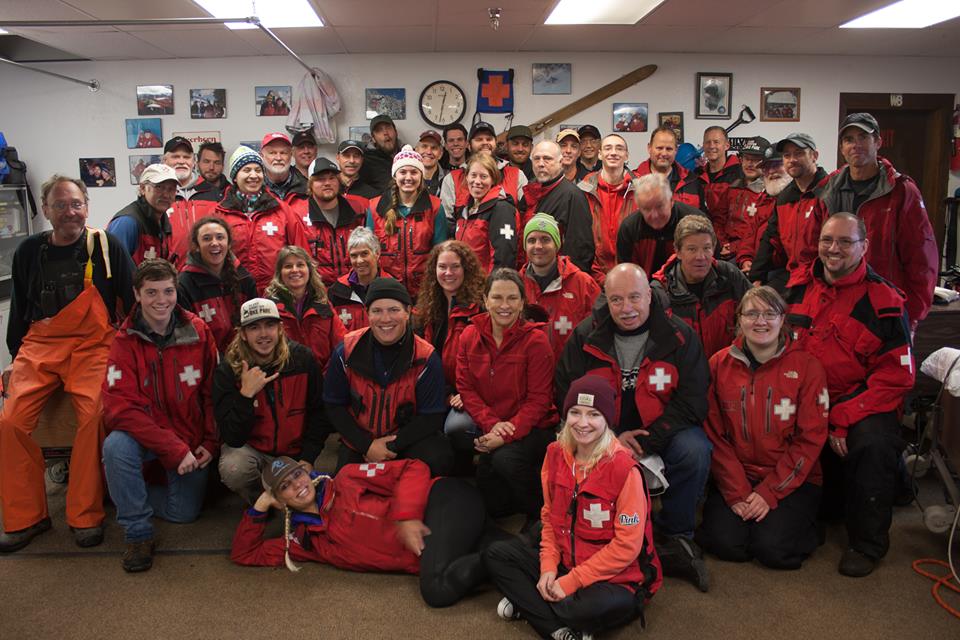A ski patroller’s day starts long before the lifts open. After large snowstorms or changes in snowpack, ski patrollers ski-cut the hill and toss bombs to reduce the risk of an avalanche before the public is on the mountain.
Once morning chores have all been completed and the guests are happy and healthy, there’s nothing left to do but get in some good turns or kick back and relax. Down time in the patrol shack usually consists of tall tales, good laughs, and strong coffee.
When a call for assistance on the hill comes in from Dispatch, the patrollers are ready to respond in seconds to assist, treat and transport if needed.

What a Ski Patroller Does
Medical First Response and Rescue
- Respond to accidents
- Assessment and treatment to injured or ill guests
- Incident scene management
- Transport of the injured or ill patient via toboggan
- Accident investigation
- Maintaining medical equipment and rescue gear
- Providing dispatch service for emergencies
- Mountain Search and Rescue
Safety and Maintenance
- Ensure and promote mountain safety
- Avalanche detonation and ski cutting
- Assessing the condition of runs before opening
- Maintaining the resort’s boundary rope lines
- Clearing debris from the trails
- Fixing broken signs and marking obstacles
- “Sweeping” the mountain at the end of the day
Guest Relations
- Routine patrolling of runs
- Personal relations with guests
- Educate guests in accident prevention and proper use of lifts
- Guidance and advice for trail choices
- Assist with Special Events
- Assist Terrain Park Crew, Lift Maintenance and Snow Sports School as necessary
- Improving ski skills… out skiing!
Qualifications and Training
What does it take?
Anyone who joins the ski patrol must be an expert skier who is strong, has high endurance and is in excellent physical condition. Skiers must be able to work under harsh weather conditions and in dangerous areas. Some ski areas require that each member of the ski patrol have a basic EMT certification. In addition to a test to assess skiing skill level, prospective ski patrol members may have to pass one or more written exams on safety, first aid and related areas.
Skills and Abilities
Intermediate to advanced skiing and/or snowboarding skills
Strong communication, decision-making, problem-solving and interpersonal skills
Ability to remain calm in emergencies
Ability to lift or move up to 100 lbs.
Competently ski or snowboard
Good general knowledge of ski area operations and terrain hazards
Training and Certifications
- All Patrollers must complete or have a current certification in OEC (Outdoor Emergency Care) or equivalent medical training, plus a CPR certification.
- Patrollers must keep this certification current through an annual medical refresher, CPR recertification, as well as a chairlift evacuation drill.
- Approximately one season is required as a Candidate Year to complete all of the Silver Mountain on-hill signoffs, which include knowledge of resort protocols. After completion of the above, you become an Auxiliary Patroller.
- To become an Alpine Patroller, you must complete toboggan training.
- Ongoing additional training is recommended.
